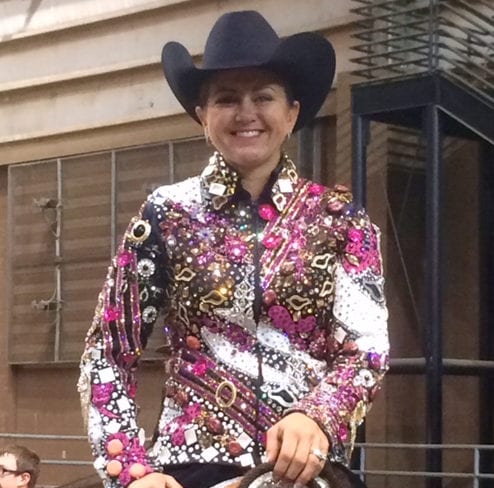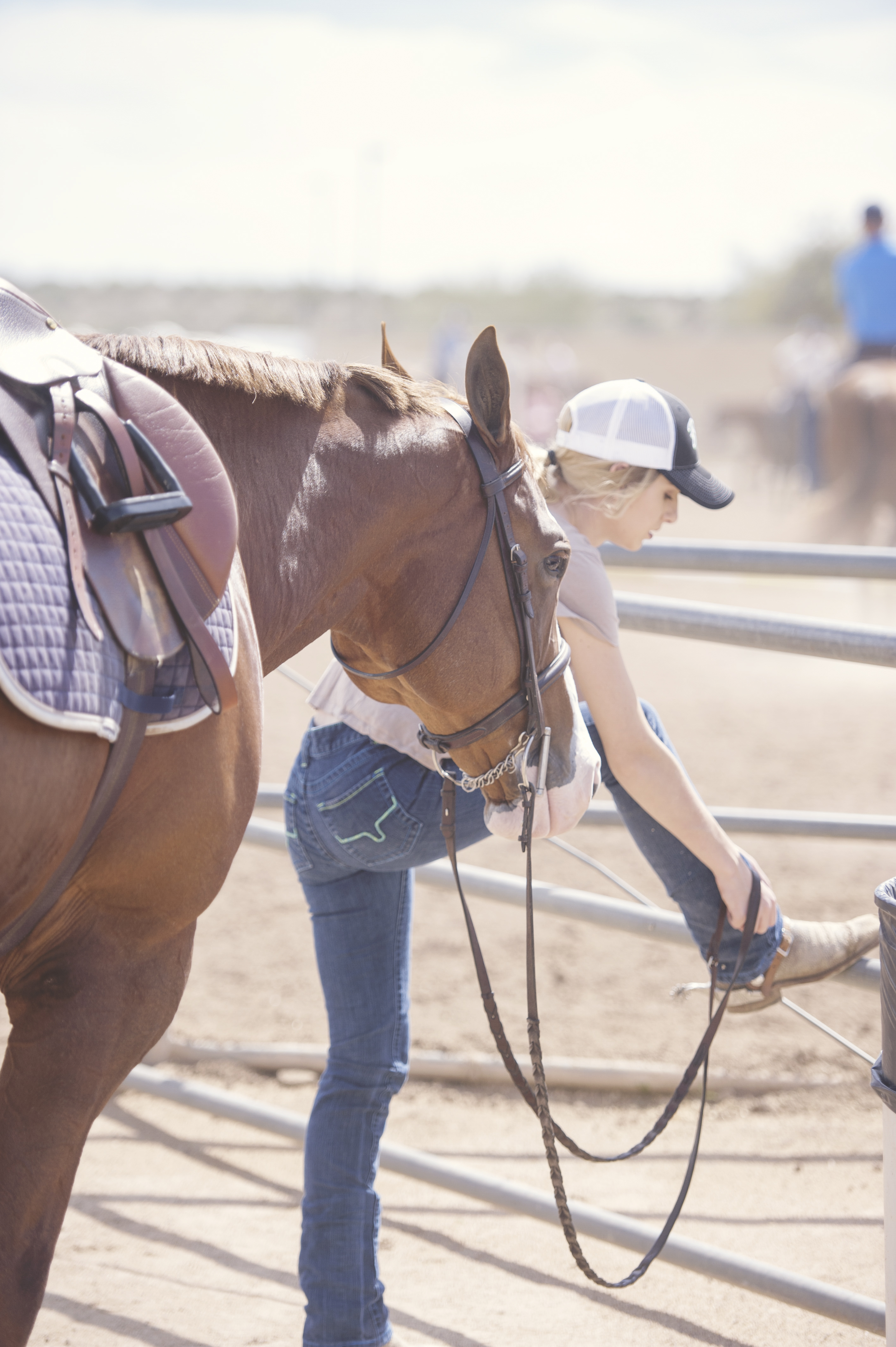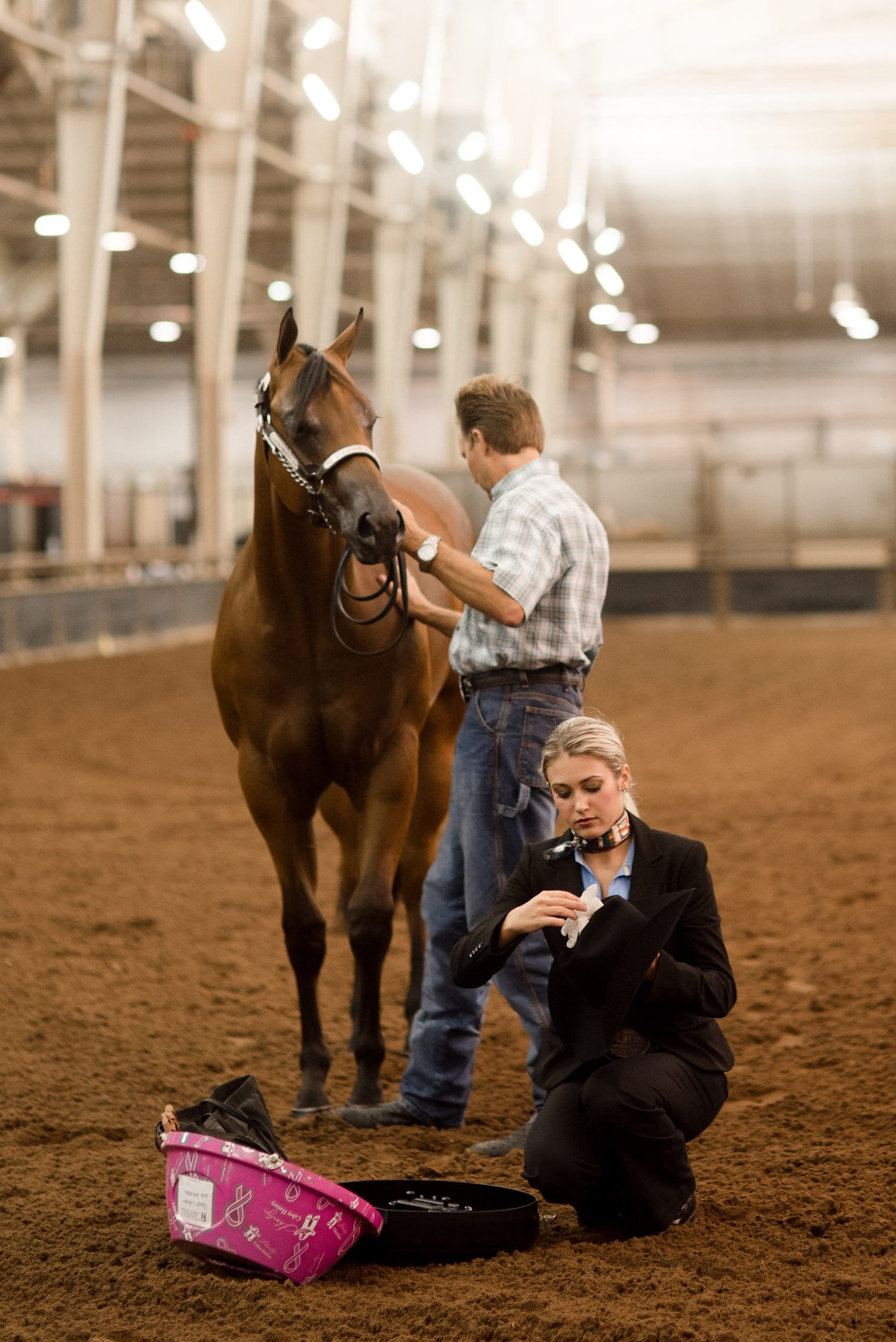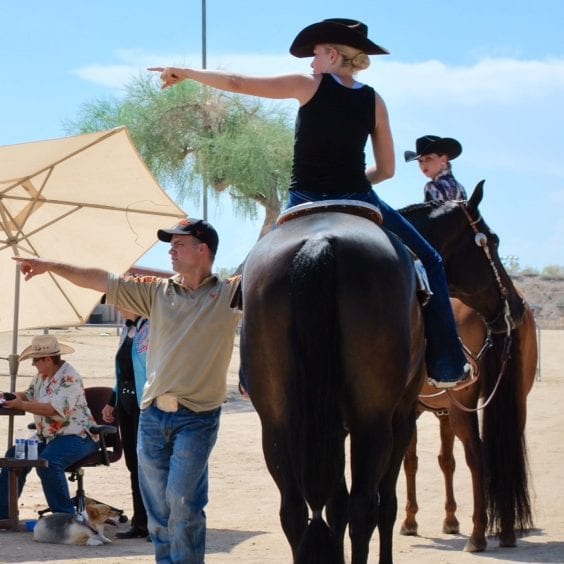From our first time saddling a horse to our first big win, our horse trainers are there to give instructions and guidance. Ultimately, the goal of our trainers is to help us achieve our goals. They are the means to the ends we are working toward because they have the knowledge of how to get there.
To translate their skills and abilities into our success, they coach us through the entire process. Since this is the way it works, it is important to trainers that their clients have the ability to be coached. So then, how do you know if you have that critical ability?
Multiple AQHA World Champion halter trainer and judge, Tom Robertson of Saline, Michigan and multiple AQHA and NSBA World Champion trainer and judge, Kristy Starnes from Summerton, South Carolina weighed in on the qualities of a coachable client. They have both had years of experience working with clients of all skills, abilities and personality types.
For them, these ten qualities contribute to a customer’s ability to understand directions, or in other words, their ability to be coached.
1) Self-Awareness
 The first step to analyzing and improving your level of coachability is to be self-aware. A client who would like to grow and develop will be able to take a good look at themselves and be honest about their qualities, both good and bad.
The first step to analyzing and improving your level of coachability is to be self-aware. A client who would like to grow and develop will be able to take a good look at themselves and be honest about their qualities, both good and bad.
Kristy Starnes (pictured right) says, “A coachable trait is for a person to have self-awareness of their strengths, weaknesses, emotions, behaviors and how these features will impact their riding and results.”
The ability to praise ourselves for our strengths and recognize those faults is not easy, but it is essential when we are being coached. For example, a person who knows they are emotional right after a class has gone wrong will know not to speak to their trainer right away, because they may not be open to the criticism.
Instead, they can wait until the dust settles before they debrief. “Just being able to identify your weaknesses will make it much easier for your trainer to help you improve them and highlight your strengths, or to find a horse to compliment you as a rider,” says Starnes.
 2) Be Competitive
2) Be Competitive
There is always some driving force that gets competitors to the pen time-after-time. More often than not, it is the desire to be the best at what they do. In fact, Tom Robertson (pictured right) says, “Some clients will tell you they just want to have fun, but deep down, they want to win.”
That competitive edge is what gives customers a reason to listen to their trainers because the trainer is the means to the end that they are hoping for. A coachable client will have that sense of purpose for going to lessons and horse shows.
3) Positivity
A positive attitude can go a long way in any situation and working with a trainer is no exception. Whether it is for praise or correction, trainers can be the most honest when they know the client can be confident about receiving it.
When they are met with a negative attitude, the trainer will feel like they have to tread carefully and perhaps leave some advice unsaid so as not make the client feel worse. If clients can smile through the rough patches, it creates a much more coachable atmosphere for the trainer.
In addition to being more coachable, a positive attitude has other benefits. “Being an active and happy person ultimately attracts the judge’s eye as well,” says Robertson.
 4) Willingness to Learn
4) Willingness to Learn
Another important quality of a person that is coachable is that they have a desire to learn. “Just because you like to ride a certain way may not be the way you can ride any horse,” says Starnes. “People need to be able to think in new ways and possibly even learn new skills for different horses.”
Essentially, a client who can learn means that he or she has the humility to realize that they do not know everything, which is the whole point of having a trainer. A person can not be coached if they are not willing to learn.
5) Vision
“When I began learning my craft,” says Robertson, “I would watch people, and then use my common sense to incorporate what I saw into how I taught my horses.”
In other words, Tom saw the result that he was hoping for, and then used the same techniques utilized by those who were already successful in what he was trying to accomplish. He looked around the pen to find his vision.
A client who has an end goal is much more coachable because, rather than just wandering through the process, he or she has the destination in mind. Once the goal is clearly communicated to the trainer, the trainer can lay out the map of how to get there. The desire to get to the destination visualized will create more willingness to follow the plan, and therefore a more coachable client.
 6) Patience
6) Patience
A coachable person will understand that progress takes patience, especially when it comes to horses. A trainer will have a harder time becoming a cohesive team with a client who expects instant gratification.
A lot needs to happen from the time an instruction leaves the trainer’s mouth before it translates into success in the show pen. It is a process that takes time. People who are less coachable do not allow enough time for the process to take place.
7) Commitment
Kristy Starnes lists commitment as a quality of a coachable person. “People have to be willing to make the commitment to not just showing, but practicing and learning your horse. It’s not all about the 30 minutes in the show arena,” says Starnes.
A client who has committed to their goals will find that their dedication makes them more coachable. It’s hard for a trainer to teach a rider who does not take their time with their horse seriously because it makes it easier for the advice to go in one ear and out the other. The commitment to improve is the foundation for seeking out the techniques that will help to do so.
8) Respect
Tom Robertson believes that having patience goes hand-in-hand with another outstanding quality of a coachable person; respect.
He says, “I think what we are ultimately asking is that the showman has the respect of his horse. This is a tough attribute to attain because the showman does not get to work with the horse every day like we, as trainers, do.”
To coach a client, while working with horses, it is important for the customer to have both the respect of the animal, as well as respect for its capability and limitations.
 9) Confidence
9) Confidence
Confidence is also among the qualities of a coachable person. When a rider is already insecure, it makes it more difficult for the trainer to try and critique that client. Coaches do not want to crush their clients, they want to help them.
For someone who lacks confidence, those suggestions for change could potentially hurt them. As a result, the trainer may avoid coaching them to their highest potential.
On the flip side, a person who is comfortable enough with themselves to accept criticism will be able to understand that it is not to be taken personally and, instead, is used to improve their goes. According to Robertson, that confidence is what makes a person walk into the show ring and come out a champion.
10) Trust
Finally and, according to Starnes, most importantly, a coachable person will have trust. If a rider does not have trust that their coach is going to give them the most accurate and appropriate advice, then why would they bother listening to him or her in the first place?
That trust is an excellent crutch during the rough patches in the process because it gives a client the security to know that things will get better as long as they continue to listen. Kristy Starnes’ advice is to “have faith in the trainer relationship and the training system. Results are not always immediate and take time. Have belief in the process.”
****
To sum up, Robertson puts it directly; “Being coachable is so important. If we are open-minded, we can all learn something new each day. When showmen are willing to turn to me for advice and assurance that things are going right, it makes it easier to gain the confidence necessary to be a winner.”
About the Author: Megan Hendrickson was born and raised on a small farm in West Jordan, Utah. She attended Utah Valley University and received a Bachelor’s degree in English. She currently resides in Logan, Utah, with her husband where she works for the Utah State 4-H program. Hendrickson has ridden horses all her life and has been an active competitor with the APHA for the past four years.








